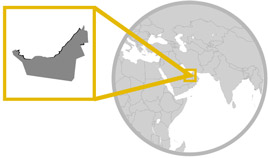VISA Requirements for Thailand:
Visa requirements for Thailand vary depending on the traveler's nationality and the purpose of their visit. Citizens of some countries are granted visa-free entry for a certain period, while others may require a visa on arrival or a pre-approved visa before traveling.
Visa Exemption: Citizens of certain countries can enter Thailand for tourism purposes without a visa and stay for a specified period. The duration of visa exemption varies, typically ranging from 14 to 90 days. It is essential to check the latest visa regulations for your specific nationality before planning your trip.
Visa on Arrival: Some nationalities are eligible for a visa on arrival, which allows them to obtain a visa upon arriving at designated entry points in Thailand. The visa on arrival is generally valid for 15 to 30 days and may be extended under certain circumstances.
Tourist Visa: Travelers from countries that are not eligible for visa exemption or visa on arrival may need to apply for a tourist visa at a Thai embassy or consulate in their home country before traveling. Tourist visas typically allow a stay of 60 days, which can be extended for an additional 30 days within Thailand.
For more extended stays or other purposes, such as business, education, or work, different types of visas are available, each with specific requirements and conditions.
Healthcare in Thailand:
Thailand has a well-developed healthcare system, and medical facilities in major cities and tourist areas are of high quality. Many private hospitals in Thailand offer modern amenities and English-speaking medical staff, making it a popular destination for medical tourism.
However, healthcare standards may vary in more rural or remote areas. It is essential for travelers to have comprehensive travel insurance that includes medical coverage before visiting Thailand. Additionally, certain vaccinations may be recommended or required before traveling to Thailand, so it's advisable to consult a healthcare professional or travel clinic for up-to-date health advice.
Transportation in Thailand:
Thailand has a well-established transportation network that offers various options for getting around the country:
Bangkok Mass Transit System (BTS Skytrain) and Mass Rapid Transit (MRT): In Bangkok, the BTS Skytrain and MRT provide convenient and efficient ways to navigate the city's traffic.
Tuk-Tuks and Taxis: Tuk-tuks are a popular mode of transport for short distances within cities and tourist areas. Taxis are also readily available in urban areas.
Buses: Thailand has an extensive bus network connecting major cities and towns. Long-distance buses are a cost-effective way to travel between different regions.
Trains: Thailand's railway system connects various cities, with both regular and sleeper trains available for longer journeys.
Domestic Flights: For traveling between distant regions or islands, domestic flights are available and offer a time-saving option.
Embassies and Consulates:
Thailand has diplomatic missions, including embassies and consulates, in many countries worldwide. These missions provide consular services to Thai citizens and assist foreigners with visa applications, emergency assistance, and other consular matters.
Foreign nationals visiting Thailand can find information about Thai embassies and consulates in their home country through the official website of the Ministry of Foreign Affairs of Thailand or by contacting the nearest Thai diplomatic mission.
Before traveling to Thailand, it is advisable to check for any updated visa requirements, health advisories, and travel safety guidelines from official government sources.

